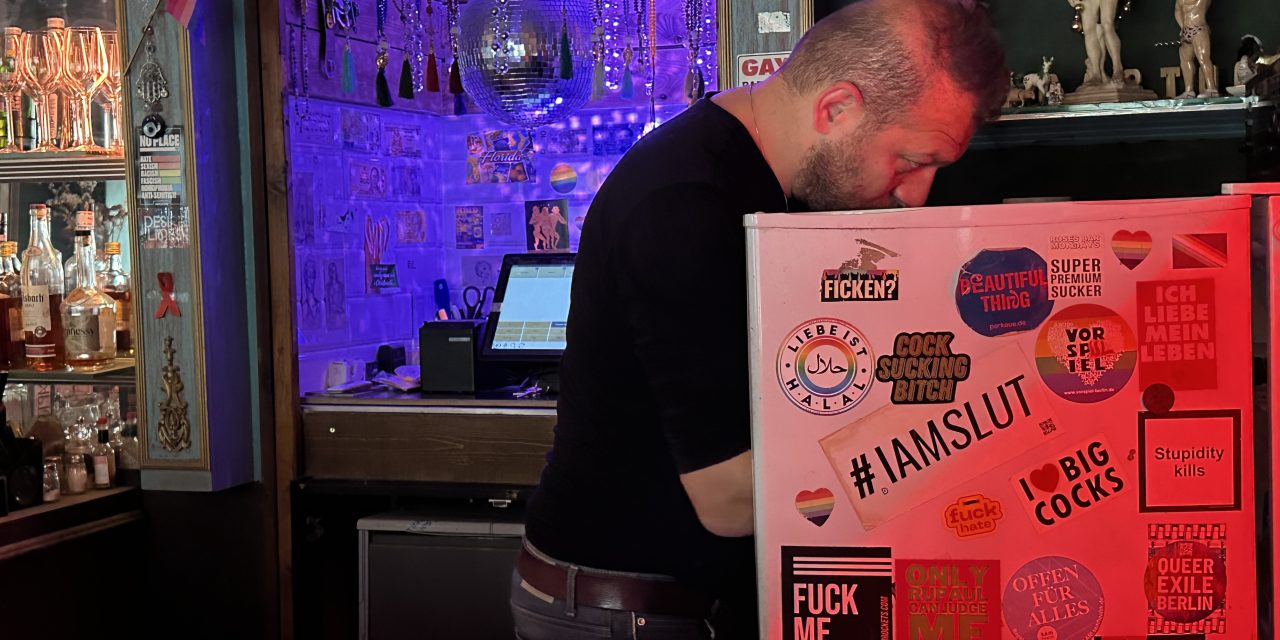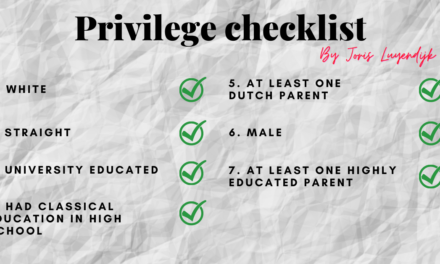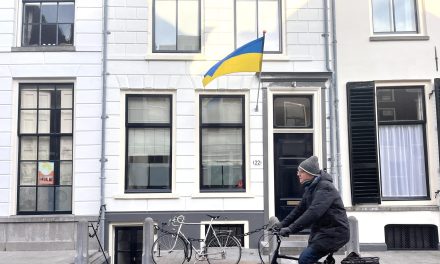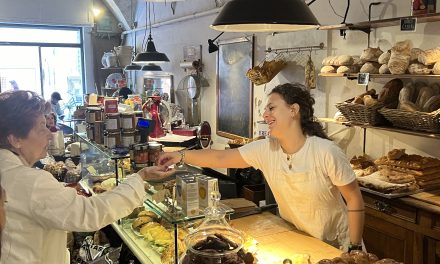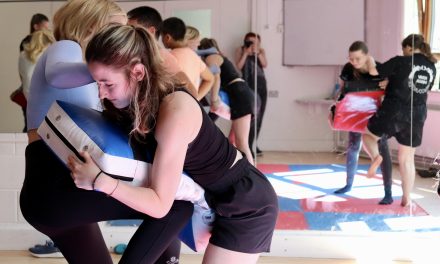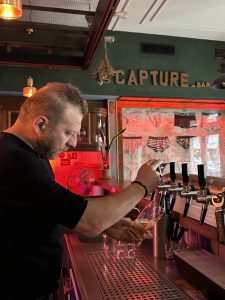
Mehmet Balikci – Berlin’s first German-Turkish gay bar owner.
The Influence That Isn’t There
Asked how the Turkish government’s plans to further restrict queer rights affect him in Berlin, Balikci says: “To be honest, personally it doesn’t affect me that much, as I’ve lived all my life in Germany. But of course it’s not nice, what’s happening there in Turkey – that the government tries to marginalize these groups.” The background: Turkey’s “Year of the Family 2025” initiative and its associated Reform Strategy Document aim to criminalize public expressions of queerness, raise the minimum age for gender transition, and tighten legal hurdles for trans people.
Koray Yılmaz-Günay, co-director of the Migration Council Berlin, supports Balikci’s view: “I don’t think Turkish politics has a huge influence on queer life here. There’s very little new immigration from Turkey, and those who’ve been here a long time are more focused on local realities than on what’s happening in Ankara.” Although both queer people and people with Turkish roots make up a significant part of Berlin’s population, there is no reliable data on this intersection. Yılmaz-Günay explains: “Data on sexual orientation simply isn’t collected. And migration data only tracks non-German citizens by nationality. Once people no longer count as having a migration background, they disappear from the statistics.”
Balikci is aware of his unique role as a gay bar owner with Turkish roots, but he doesn’t place much importance on it personally. At Capturebar, cultural background and sexuality are secondary. It’s meant to be a safe space for everyone – and with this approach, he hopes to create as much diversity as possible.
Not Immune to Racism
Koray Yılmaz-Günay has been active in queer and anti-racist movements in Berlin for over two decades. Today, he co-directs the Migration Council, an umbrella organization representing more than ninety migrant-led groups. Since 9/11, he observes, Muslims and migrants have increasingly been cast as the “other” – even within queer contexts.
“Almost 25 years later, we still hear the same narratives: that queerness equals progress, and immigration equals backwardness. That being queer and being Muslim – or migrant, or a person of color – are somehow in conflict,” Yılmaz-Günay says.
He also points to discrimination within the queer community itself: “There’s this tendency to say: ‘We’re the good ones – we experience discrimination, so we can’t possibly be part of the problem.’ But if bars deny entry to migrants because they’re assumed to be violent, or because they ‘don’t look gay enough’ – that’s all real. All of that exists in queer spaces, especially in gay male spaces.”
The Limits of Queer Representation
Hatice Açıköz is a writer and podcaster based in Hamburg. In her work, she speaks about asexuality, language, and how racism shaped her experience growing up in Germany. “I was born here, went to school here, so I mostly feel German – but growing up in a Turkish household affects you. Being Turkish in Germany has its effects, and I write about the effects.” She also notices exclusion within the queer scene in Germany.
On Thursday, April 10, 2025, Hatice performed at the Haus für Poesie in Berlin as part of a reading for Parabolis Virtualis, a queer poetry anthology. One of her poems dealt with the arson attack in Solingen in 1993, where five members of a Turkish family were killed. One of the victims shared her name. “So I feel attached to it, and they didn’t live so far away from where I lived at the time,” she says.
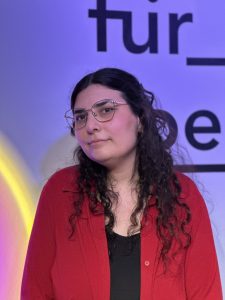
Hatice Açıköz at the reading of Haus für Poesie in Berlin.
As an asexual woman with Turkish roots, Hatice particularly criticizes the lack of representation of minorities within the queer community. “I don’t think it’s ever enough, until we have as many queer stories as we have male, mediocre, white stories,” she says. “I want deeper stories – something more than just another coming-out piece. So that the next generation doesn’t need to go through so many stupid questions and intolerance.”
